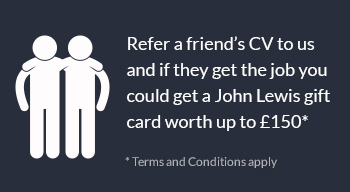How to write the perfect CV for Finance and Accountancy jobs
Many different opinions exist about what makes a good CV, at Marc Daniels we know exactly what finance professionals look for when recruiting. The first thing to remember is that a good CV doesn’t guarantee a job interview, but a bad CV will guarantee you won’t get an interview. Your CV is the very first thing a potential employer sees about you and quick judgements will be made based on how you present yourself in this document.
So what should a finance and accountancy CV contain?
- Firstly the basics – your name, address and other contact details. If you already have a job, don’t put your work contact details in here, stick to your mobile/home phone number and personal email address.
- Next, be up front and write a couple of sentences profiling what kind of role you are looking for, why you think that the role would be suitable for you and why you are looking to move on from your employer.
- Your work experience needs to be a key section of your CV. Draw out responsibilities and tangible deliverables/achievements that show the skills you want to highlight for your new job e.g. implemented new software, reduced aged debt by 50%… Make sure you include the volume and value of work you’ve done – employers want to see what you are capable of doing with strong evidence. Give more information on your most recent jobs and let those jobs further in the past be briefly summarised.
- Education and qualifications. For finance roles the most important aspect to highlight is whether you have any accountancy qualifications including what stage you are at and when your next exams will be. If you are already qualified, state when you qualified and do highlight it if you passed all your exams first time. Next, you want to focus on you other most advanced qualifications, there’s no point listing all your GCSE grades if you have a Postgraduate degree! Finance and accountancy employers are especially interested in anything you did following on from A-Levels. If you don’t have a degree and want to get into a finance role, ensure you illustrate you are capable of the basics by highlighting GCSE’s in maths, Maths A-Levels or vocational qualifications that incorporate a mathematical or financial/accountancy element.
- Additional Information – This non-obligatory section allows you to highlight any other facets that might make you appear extremely employable e.g. Financial software that you can use such as SAP or Excel (NB a good level of Excel usage is critical in most finance roles). Whether you have a full clean driving license, foreign languages you speak…there are many possibilities. Also include the notice period of your current role in this section.
What to avoid on a CV
- Reams and reams about hobbies and interests. Whilst it is interesting to know what a candidate enjoys doing, this information adds little value in terms of securing a job interview. One line in the additional information section on interests will suffice.
- Unexplained career gaps. Employers will spot, for example, that there is a year after you graduated until your first job began – this could convey that you had real difficulty obtaining a job…however, if you instead insert that you went travelling for a year and did some volunteer work the potentially negative gap becomes a positive.
- Never lie on your CV. You will, almost certainly, be found out – don’t do it, however tempting!
- Avoid an over long CV. If CV’s run longer than two pages they become a more cumbersome document to read. If you are struggling to keep your CV to two pages, try deleting some very old work experience, particularly if it isn’t relevant to the job you are applying for.
What if I need further help?
If you are updating your CV to look for a new finance or accountancy job we can help. Give us a call on 01628 788588 for our Maidenhead team or 01189 072 444 for our Reading team and one of our experienced consultants can advise you on what to do next.


